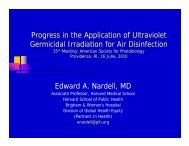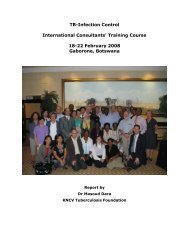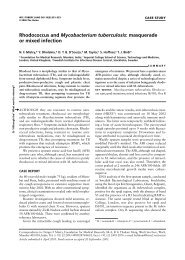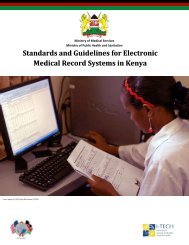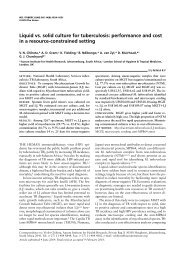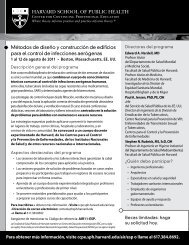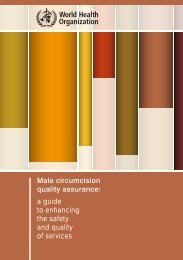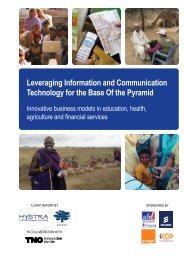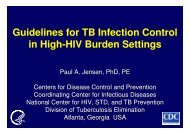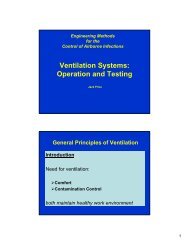THE ARTEMISININ ENTERPRISE - GHDonline
THE ARTEMISININ ENTERPRISE - GHDonline
THE ARTEMISININ ENTERPRISE - GHDonline
You also want an ePaper? Increase the reach of your titles
YUMPU automatically turns print PDFs into web optimized ePapers that Google loves.
Funding Artemisinin and ACTs<br />
The majority of ACT procurement has been financed by international donors with minimal<br />
financing (purchase) by the private sector due to the relatively high price of ACTs vis‐à‐vis<br />
the more commonly used monotherapies ‐ CQ and SP. The three major funders of ACTs are<br />
Global Fund, World Bank and US Presidentʹs Malaria Initiative (PMI), which have jointly<br />
funded the procurement of over 200 million treatments since 2005.<br />
In 2004, the Institute of Medicine published a report § that proposed a new funding<br />
mechanism to finance the procurement of ACTs. The Affordable Medicines Facility for<br />
malaria (AMFm) will subsidize the cost of the ACTs by providing a co‐payment to<br />
manufacturers for every treatment they sell such that the cost to the first‐line buyer incountry<br />
is around US$0.10 cents per treatment, resulting in a cost to the patient that is<br />
roughly the same as the cost of CQ and SP. This mechanism of subsidy would make ACTs<br />
far more affordable for patients, and so is expected to drive out counterfeit and substandard<br />
ACTs as well as artemisinin monotherapies. The AMFm will be launched in 2009 with<br />
Phase 1 being implemented in 11 countries with a total ACT budget of approximately<br />
US$ 225M ** . The AMFm is expected to fund majority of additional procurement of ACTs,<br />
and over the next few years could become the largest funder of ACTs.<br />
Although a mechanism for subsidizing ACTs exists, there is no such co‐payment or<br />
ʺadvance market commitmentʺ mechanism for payment to extractors and farmers. It is<br />
expected (or even hoped) that market mechanisms and contracts between ACTs<br />
manufacturers and extractors/farmers will ensure continued and uninterrupted supply of<br />
artemisinin. Based on discussions during the AE Conference, the extractors highlighted<br />
their concern that the current market environment of unpredictable demand, potential entry<br />
of new technology, sudden drop in prices and competing agricultural products has started<br />
to erode the number of farmers and extractors; and unless the global community intervenes<br />
rapidly, the next planting season could result in drastic reduction in artemisinin leading to a<br />
severe shortfall of ACTs in 2010. This concern is re‐visited in the sections under ʺImpactʺ<br />
and ʺRecommendationsʺ.<br />
§<br />
ʺSaving Lives, Buying Timeʺ, Institute of Medicine. Washington, 2004<br />
**<br />
McKinsey analysis for UNITAID<br />
28








